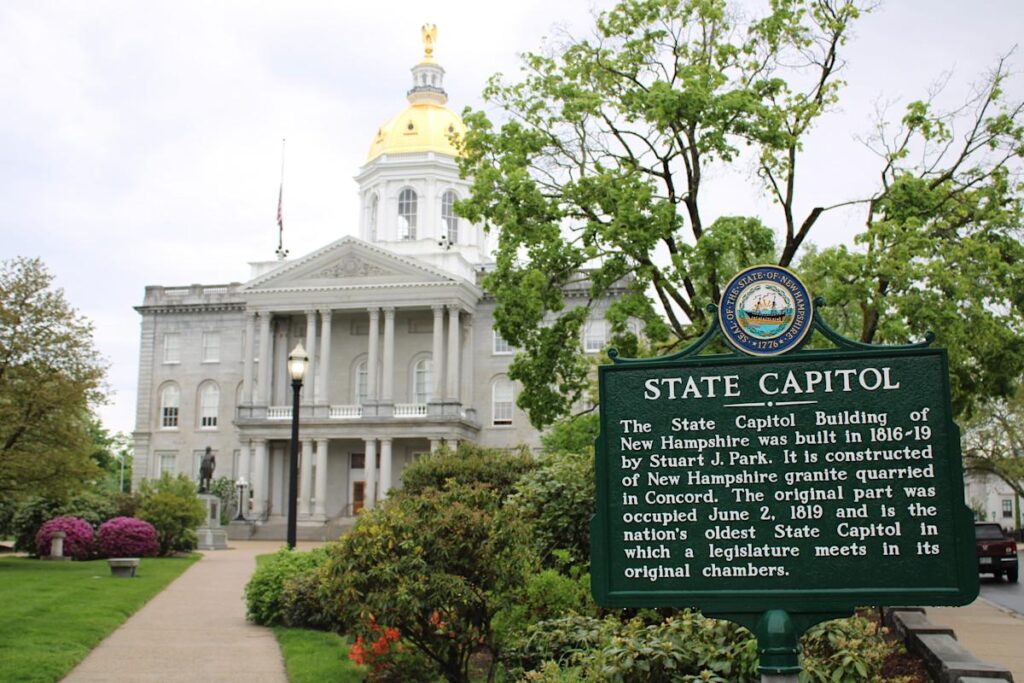The New Hampshire Senate is set to vote Thursday on a bill aimed at creating a consistent building code across the entire state — by preventing local officials from creating their own rules.
If enacted, House Bill 428 — which was sponsored by Goffstown Republican Rep. Joe Alexander and co-sponsored by a group of his Republican colleagues — would forbid local officials in New Hampshire from amending the building code within their municipality, creating a uniform code across the state. This bill would leave the state Legislature as the only body able to amend that code. If enacted, it wouldn’t go into effect until January 2027, an attempt by lawmakers to give municipalities time to comply.
“Currently under state law, municipalities are able to make changes to the state code that are more stringent,” Alexander said when introducing the bill in January. “This causes the possibility of hundreds of different codes across the state. Can you see where that’s an issue?”
The New Hampshire State House with the State Capitol sign.
The House approved this bill through a voice vote in March after amending it to allow for variations in administrative rules, such as processes for applying for building permits or fees paid to building departments. Substantive changes to the building code itself remain prohibited under the amended bill. The Senate Executive Departments and Administration Committee voted, 4-1, to recommend the entire Senate approve the bill.
Rep. Carol McGuire, an Epsom Republican and co-sponsor of the bill, said during a hearing last month that “a number of municipalities have adopted amendments that severely undermine the ability of people to work between one town and the next.”
Alexander, McGuire, and their fellow co-sponsors argue that having so much variety between the building codes of different towns and cities makes it difficult for home builders who do business in multiple municipalities. Following these varying codes also increases their costs and makes homes more expensive, they argued.
“You have a patchwork of different types of building codes across the state, which makes it much more difficult for people to do business,” McGuire continued. “The principle is that we think if we have a state building code, it should be the state building code.”
Matt Mayberry, CEO of the New Hampshire Home Builders Association, commended the bill for helping ensure “one state, one code.”
Mayberry said he’s “not excited” that the bill waits until 2027 to take effect, “but I understand it, I guess.” He said he liked the bill because he’d rather see decisions made by the state Legislature over local boards and councils.
“I put my trust in 424 individuals to make those policy decisions for our state of New Hampshire versus a five-member town council or select board who may be more socially driven than policy driven,” Mayberry said.
Margaret Byrnes, with the New Hampshire Municipal Association, testified in January that her organization, which represents towns and cities throughout the state, opposed the bill. She said it would “take away established local authority to adopt local codes, which has been established in state law for many years.” She also urged lawmakers not to proceed with this bill until they can see the impacts of changes made by lawmakers last year requiring municipalities to submit their zoning amendments to the State Building Code Review Board for review.
“I would ask the committee to consider letting the legislation from last year play out before we go ahead and remove local authority to adopt local building codes,” Byrnes said.
A similar bill, Senate Bill 94, passed the Senate in March. Both bills forbid local building code amendments with slight variations. The House retained SB 94 in committee — which means it won’t advance to a floor vote for now — in hopes that language from both is merged into HB 428 and passed by the Senate.
A tight New Hampshire housing market
This comes after years of soaring housing prices in New Hampshire. The median home sale price in New Hampshire year-to-date was roughly $515,000 for single-family houses and $410,000 for condos, according to the New Hampshire Association of Realtors April report. That’s a 6.2% and 2.5% increase, respectively, from the same time last year, when the association reported an average sale price of $485,000 for single-family houses and $400,000 for condos. This exceeds the U.S. inflation rate, which was 2.3% for the year ending in April, according to the U.S. Bureau of Labor Statistics. In April 2015, the median sale price year-to-date was roughly $227,000 for single family houses and $161,500 for condos, according to the New Hampshire Association of Realtors.
Economists point to the low supply of housing in New Hampshire as a driver of rising prices. In April 2025, there were 1,614 single family houses and 624 condos for sale in New Hampshire, according to the Association of Realtors. That’s up from last year when there were 1,227 single family houses and 487 condos for sale, but it’s down substantially over the course of a decade. In April 2015, there were 10,319 single-family houses and 2,134 condos for sale.
Housing is a major issue for New Hampshire voters. A poll commissioned by advocacy group New Hampshire Housing Action found that 55% of respondents considered New Hampshire’s housing shortage the number one issue facing the state. That’s more than inflation, taxes, homelessness, health care costs, and immigration. Similarly, Gov. Kelly Ayotte as well as both Republicans and Democrats in the Legislature have highlighted it as one of the most pressing issues and vowed to address it.
This story was first published in New Hampshire Bulletin.
This article originally appeared on Portsmouth Herald: Bill seeks to streamline NH building codes amid rising housing costs
Read the full article here


